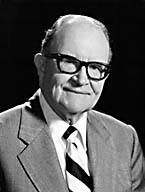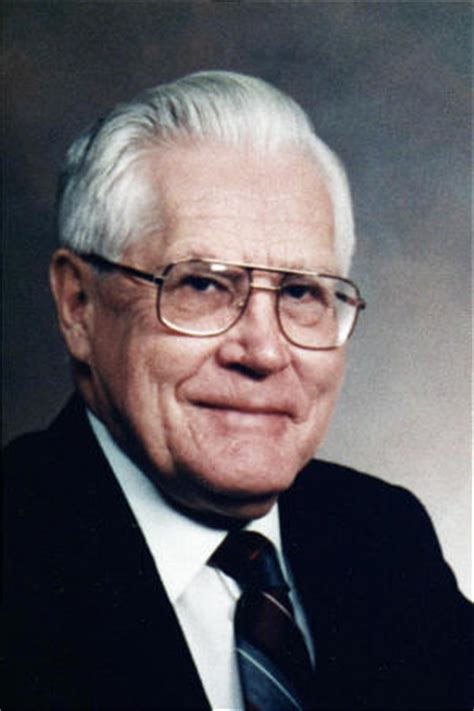A Quote by Theodore M. Burton
Repentance is a change of behavior which invites forgiveness.
Quote Topics
Related Quotes
The saved sinner is prostrate in adoration, lost in wonder and praise. He knows repentance is not what we do in order to earn forgiveness; it is what we do because we have been forgiven. It serves as an expression of gratitude rather than an effort to earn forgiveness. Thus the sequence of forgiveness and then repentance, rather than repentance and then forgiveness, is crucial for understanding the gospel of grace.
I think [forgiveness] may be the greatest virtue on earth, and certainly the most needed. There is so much of meanness and abuse, of intolerance and hatred. There is so great a need for repentance and forgiveness. It is the great principle emphasized in all of scripture, both ancient and modern. Somehow forgiveness, with love and tolerance, accomplishes miracles that can happen in no other way.
God is undoubtedly ready to pardon whenever the sinner turns. Therefore, he does not will his death, in so far as he wills repentance. But experience shows that this will, for the repentance of those whom he invites to himself, is not such as to make him touch all their hearts. Still, it cannot be said that he acts deceitfully; for though the external word only renders, those who hear it, and do not obey it, inexcusable, it is still truly regarded as an evidence of the grace by which he reconciles men to himself.
Admittedly, repentance is not always easy; I suppose it would not be true repentance if it were. It can also take a longer time than we think or hope. There can be missteps along the way, when we falter or lose heart, but we can reset our course and move forward again, even if it is only one small step at a time. As well as praying for forgiveness, we can also plead for courage, and it will come. If we do so, steady but surely, we will rise from the miry depths of sin and emerge into the sunny uplands of forgiveness and hope.
Many of us understand giving, but some of us may still be confused about the meaning of forgiveness. Some people may go through life in a groveling mode, mistakenly believing they have to receive forgiveness from others. Forgiveness offers more than a reprieve granted to us by another person. True forgiveness is a process of giving up the false for the true and allows us to rid our thinking of rigid ideas. We can develop the flexibility to change our mind and our behavior patterns to higher and greater expressions and find new avenues to freedom.
We do not have to make ourselves suffer in order to merit forgiveness. We simply receive the forgiveness earned by Christ. 1 John 1:9 says that God forgives us because He is ‘just.’ That is a remarkable statement. It would be unjust of God to ever deny us forgiveness, because Jesus earned our acceptance! In religion we earn our forgiveness with our repentance, but in the gospel we just receive it.
Forgiveness does not create a relationship. Unless people speak the truth about what they have done and change their mind and behavior, a relationship of trust is not possible. When you forgive someone you certainly release them from judgment, but without true change, no real relationship can be established.
True repentance is no light matter. It is a thorough change of heart about sin, a change showing itself in godly sorrow and humiliation - in heartfelt confession before the throne of grace - in a complete breaking off from sinful habits, and an abiding hatred of all sin. Such repentance is the inseparable companion of saving faith in Christ.
Through repentance the filth of our foul actions is washed away. After this, we participate in the Holy Spirit, not automatically, but according to the faith, humility and inner disposition of the repentance in which our soul is engaged. For this reason it is good to repent each day as the act of repentance is unending.






























